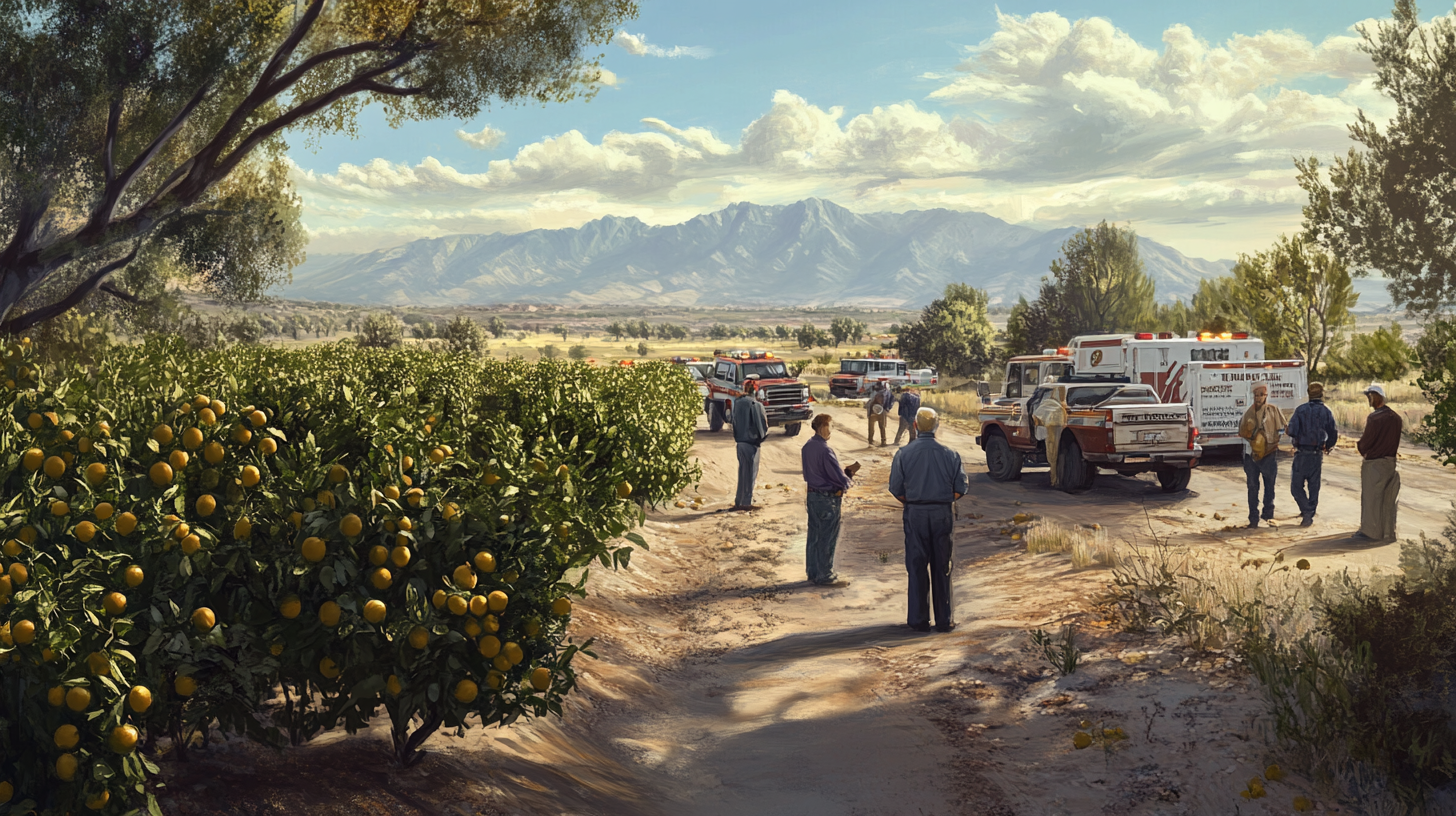Food Bank RGV Hosts Farm Dinner Fundraiser Amid Regional Challenges
As the Rio Grande Valley (RGV) recovers from a recent freeze that threatened its citrus groves, the Food Bank RGV is turning focus toward strengthening community resilience through food sustainability. The organization is set to host its annual Farm Dinner fundraising event on January 24, to support its farm and community garden projects. These initiatives aim to empower Valley residents with the knowledge and resources to achieve self-sufficiency in food production.
Context: A Community Facing Challenges
The recent cold snap that plunged temperatures below freezing for hours left RGV’s agriculture in a precarious state. Citrus growers are now assessing the extent of the damage to their groves, a stark reminder of the vulnerabilities faced by South Texas farmers due to weather extremities. These conditions reinforce the importance of sustainable agricultural practices and community support systems to mitigate impacts on the local economy and food supply.
Amid these challenges, the Mexican Consulate in McAllen has been actively providing resources to assist undocumented Mexican nationals in the U.S., underlining the diverse social issues that intertwine with economic and environmental factors in the region. Meanwhile, local residents have been contending with the implications of recent winter storms, from disrupted sporting events to increased demand for services like windshield repairs in McAllen.
Supporting Local Resilience Through Farming
The Food Bank RGV’s farm and community garden projects are crucial efforts aimed at educating families on gardening techniques and nutritional well-being. “Our goal is not only to provide food but to empower our community with skills for self-reliance,” stated Libby Saenz, CEO of Food Bank RGV. This initiative gains significance in the wake of the recent freeze, which has spotlighted the necessity of diversified food sources and local agricultural resilience.
The Farm Dinner event will help raise critical funds needed to maintain and expand these projects. Located at the Food Bank RGV facility on North Cage Boulevard in Pharr, the fundraiser seeks to draw in community support and engagement, reminding Valley residents of the importance of local agriculture amid broader environmental and economic challenges.
Ripple Effects on Local Economy
The freeze’s impact on citrus groves is more than an agricultural concern; it poses a potential economic ripple effect throughout the RGV. As farmers continue to evaluate damages, the Food Bank’s effort to promote sustainable practices becomes a beacon for local self-sufficiency. By equipping residents with gardening skills, the community can better withstand agricultural disruptions, essential for areas heavily reliant on farming.
In a broader context, this initiative is part of a series of responses to ongoing economic and social pressures in the RGV, including immigration challenges and public safety concerns. For instance, McAllen police recently identified victims of a fatal motorcycle accident, a sobering reminder of the community’s need for comprehensive support systems.
Past, Present, and Future: Connecting the Dots
The Farm Dinner and its associated projects are not isolated efforts but rather reflective of a continued commitment to adapt and evolve community strategies in response to climate and economic changes. Similar initiatives have tried to address these issues with mixed success, underscoring the need for sustained community engagement and policy support.
The local drive toward food security is essential to combat economic vulnerabilities that become more apparent in the face of climate challenges. By involving a diverse range of community members and leaders, events like the Farm Dinner can serve as platforms for broader discussions on sustainability and resilience.
Looking Ahead: Potential Implications and Community Involvement
The success of the Farm Dinner and its implications can set a precedent for future community-driven initiatives across South Texas. Collaborative efforts between nonprofits, local governments, and residents can strengthen the regional response to environmental and economic challenges, paving the way for more resilient RGV communities.
Community members interested in attending or supporting the Farm Dinner can find more information and tickets through the Food Bank RGV’s website. Additionally, those unable to attend in person can contribute via online donations or by volunteering in upcoming garden projects, playing an essential role in ensuring a sustainable future for the Valley.
Conclusion: A Call to Action for Valley Residents
In these trying times, the Farm Dinner symbolizes more than a fundraiser; it is a call to action for Valley residents and businesses to unite for the common goal of community resilience. Food Bank RGV’s continued efforts maintain hope and empowerment, demonstrating the power of local impact in addressing larger regional challenges—from unpredictable weather to economic disparities.
As the Valley navigates these multifaceted pressures, initiatives like the Farm Dinner and the anticipated community response will be critical in shaping a sustainable and inclusive future in South Texas. Through concerted community efforts, residents of the RGV can look toward a horizon of resilience and self-reliance, underscoring the Valley’s enduring spirit and capacity for renewal.







